Hungarian Peacekeepers Leave the Sinai Peninsula after Twenty Years
Szöveg: honvedelem.hu / MTI | 2015. április 4. 6:05Hungarian peacekeepers withdrawn from Egypt’s Sinai Peninsula following two decades of presence
Galéria
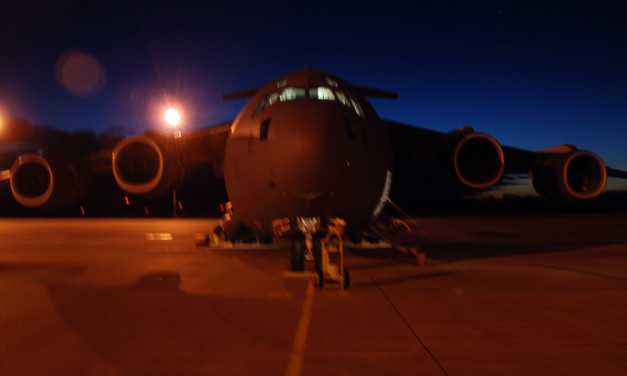
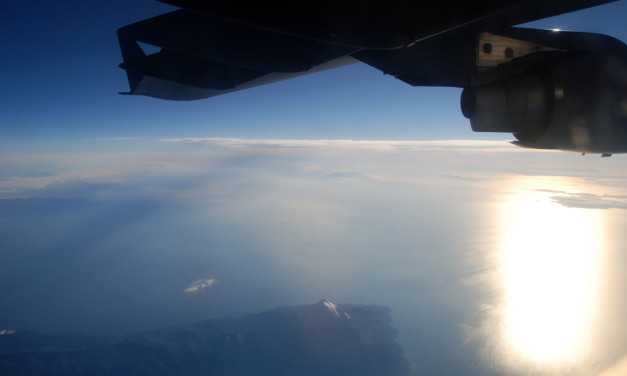

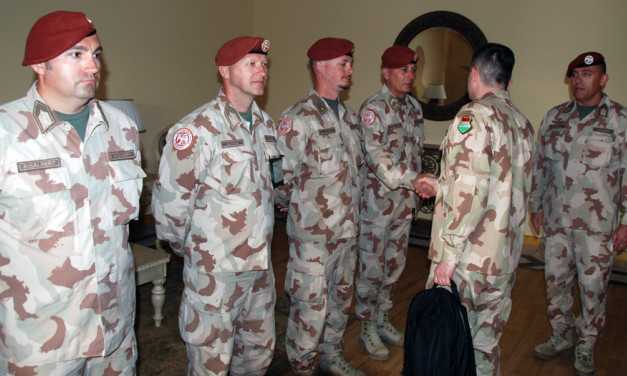
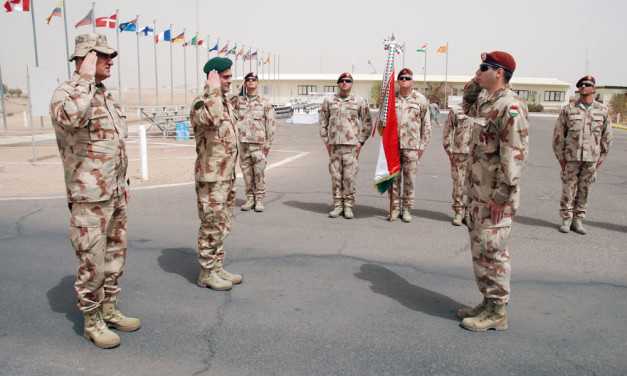
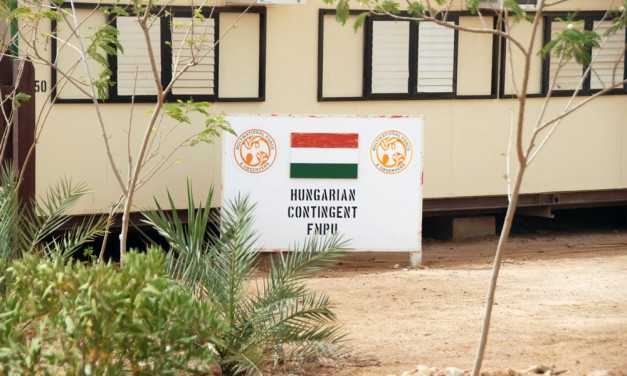
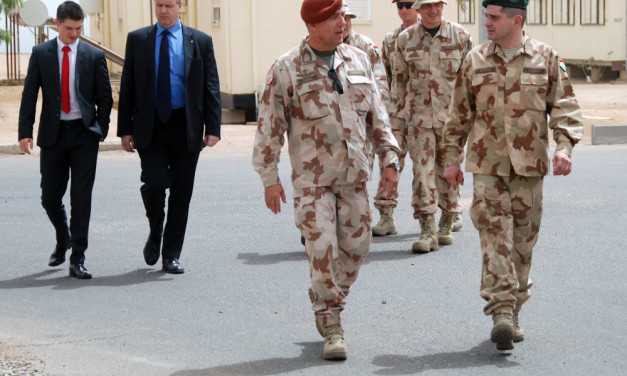
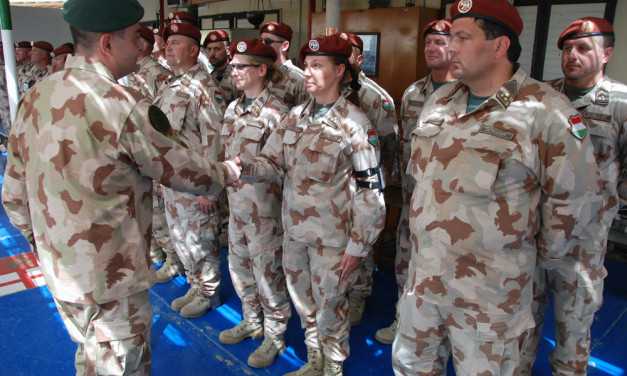
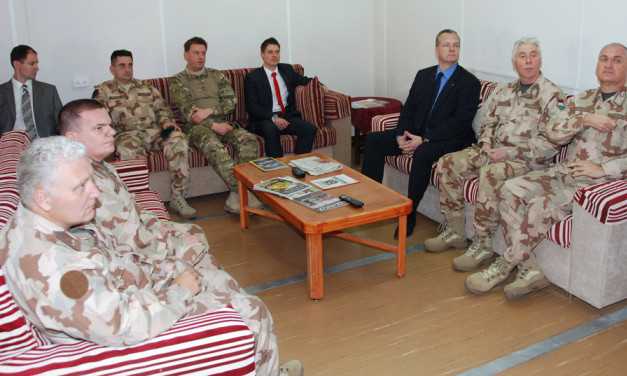

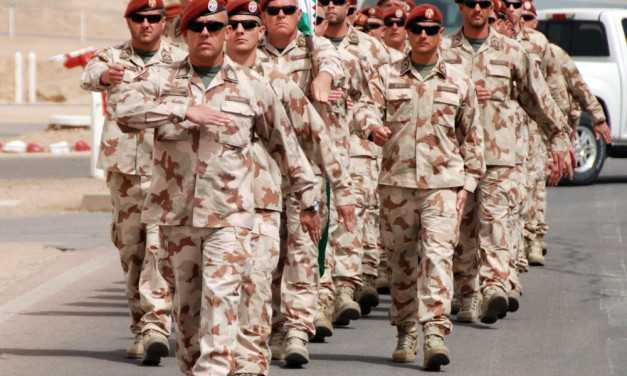
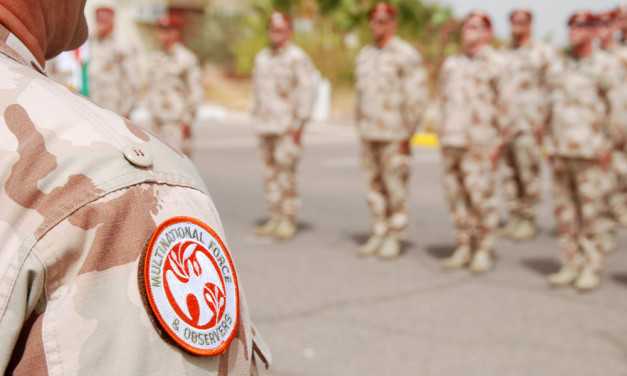
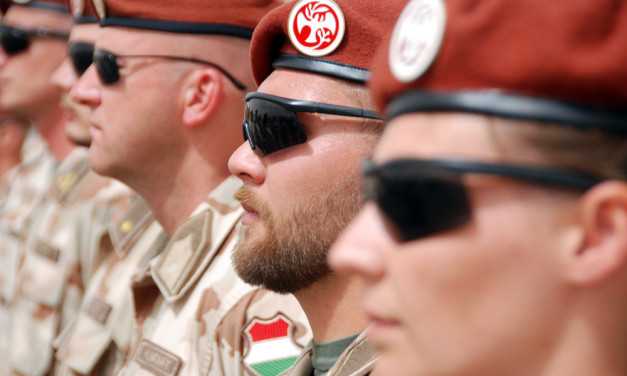
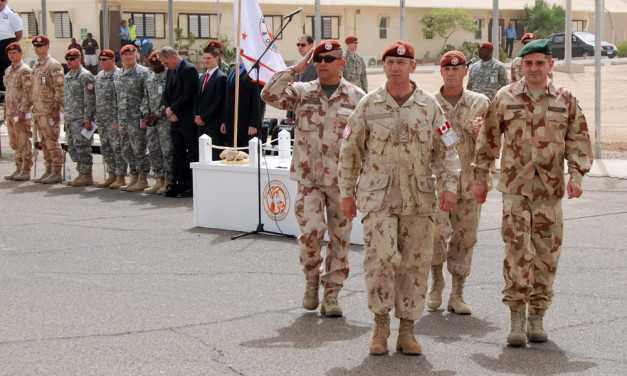
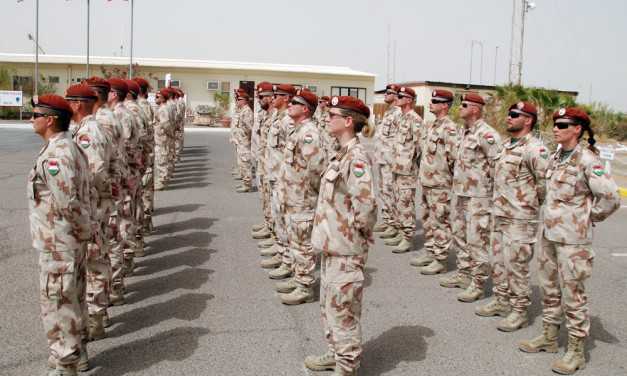
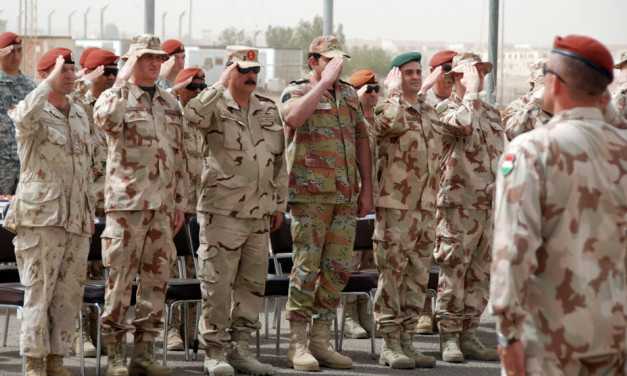
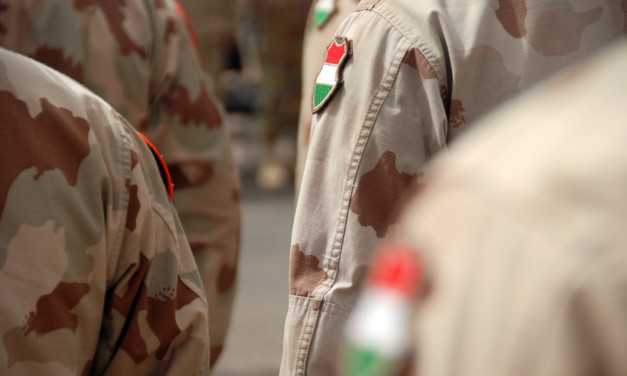
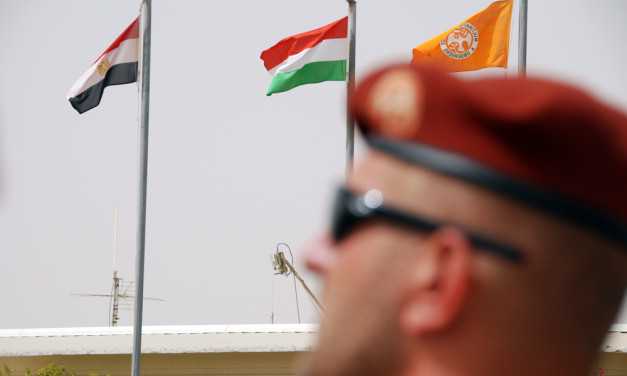
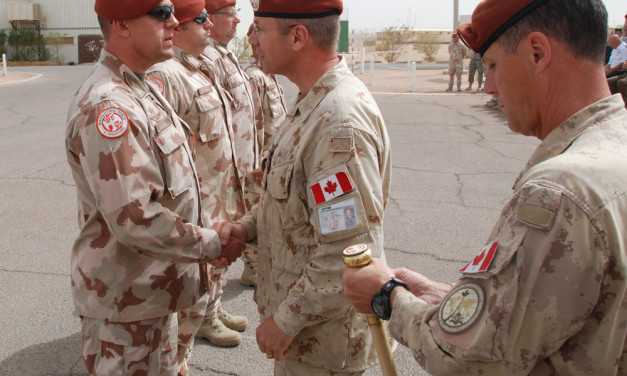
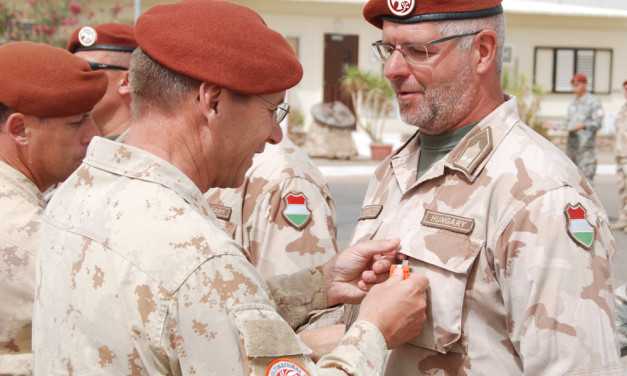
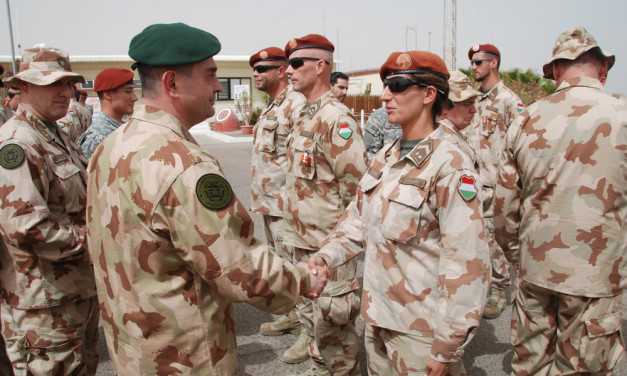

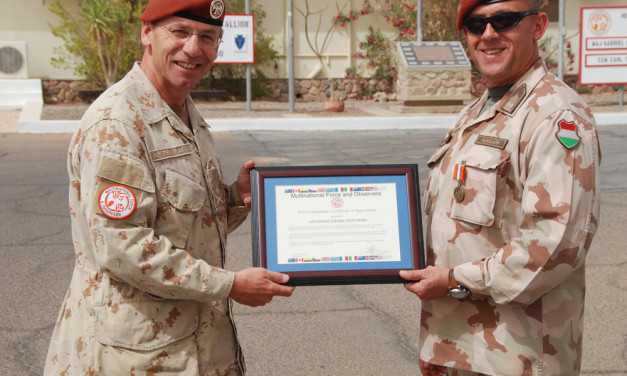
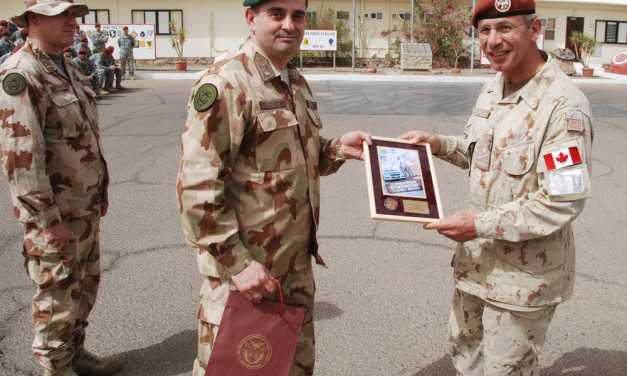
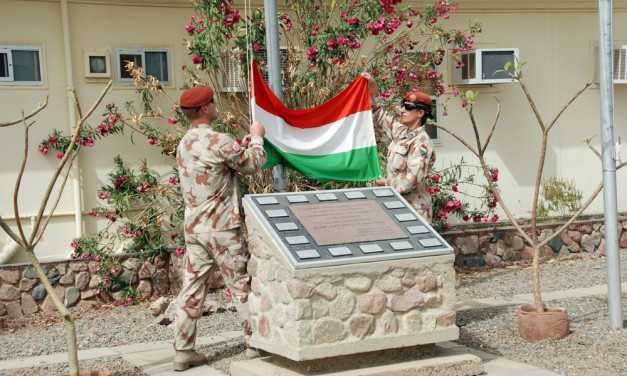
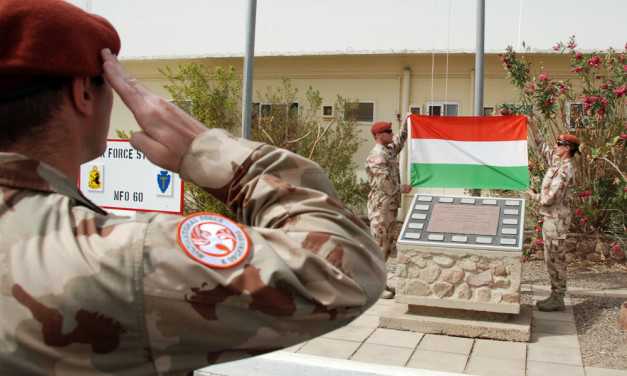
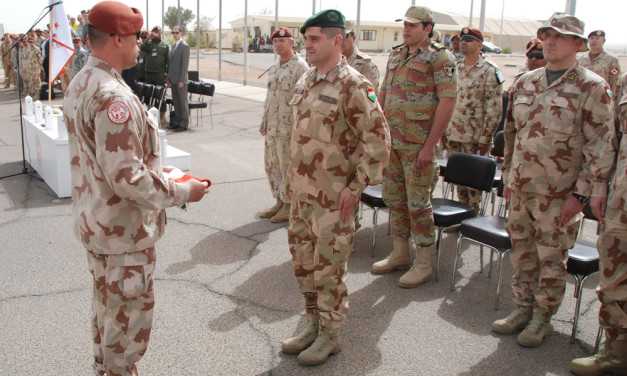
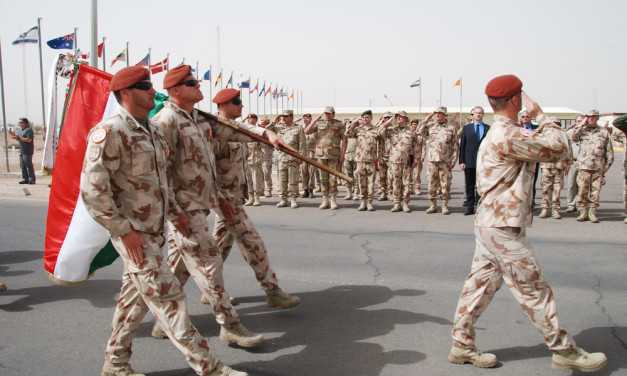
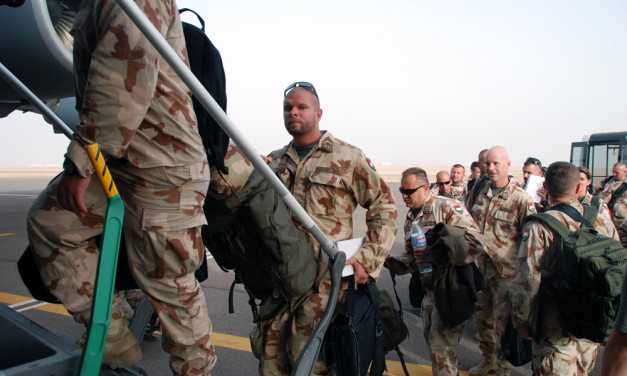
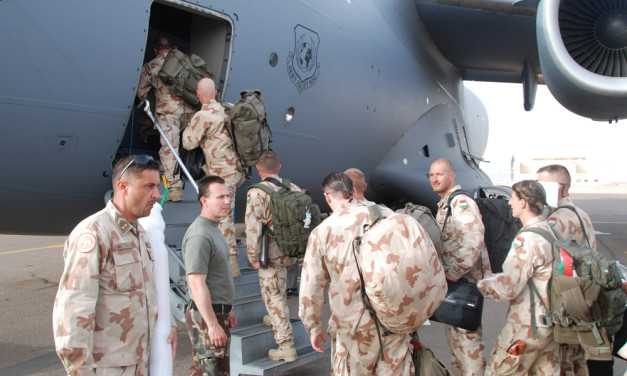
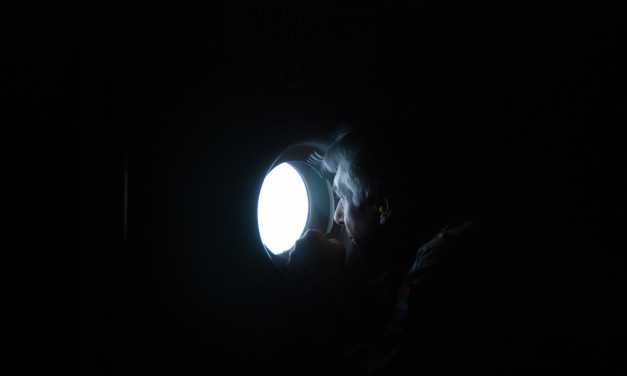
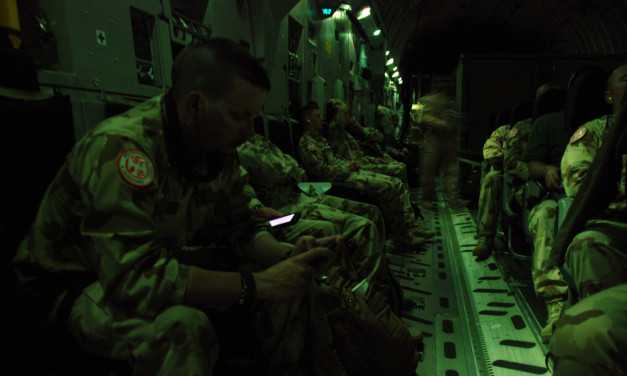
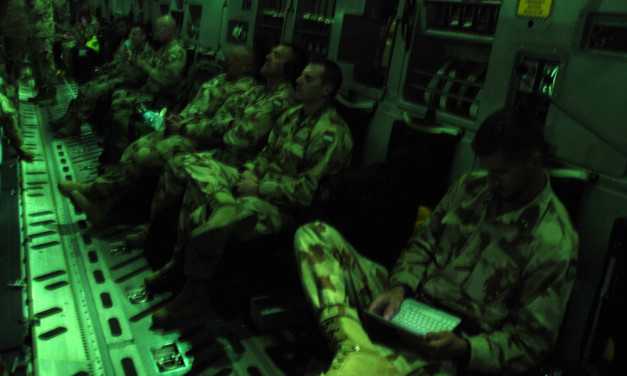

The high-ranking Hungarian delegation arriving to terminate the mandate was headed by HDF Land Forces Chief Brig.-Gen. Gábor Böröndi. In his speech delivered before the lowering of the Hungarian flag, the general reminded those present of the fact that “the Sinai Peninsula was the first-ever area of operations where Hungary was represented not only by individual persons but also by a contingent of its own. This was he first time that our troops participated in an armed peacekeeping operation", the brigadier-general said. He pointed out that the mission was also unique because the contingent was jointly made up of policemen and troops.
Over the last 20 years, more than 800 Hungarians have served in 39 rotations at the two MFO bases in the northern and southern parts of the peninsula, under changing security conditions.

In detailing the background to the end of the mission, Gábor Böröndi told Hungarian News Agency MTI that “in cooperation with the Ministry of Defence, the Ministry of Foreign Affairs and Trade recently reviewed the Hungarian Defence Forces’ international engagement. As a result, we have increased the troop numbers in the Balkans by an infantry company, for example, and kept the Afghanistan role. At the same time, we had to investigate the possibilities of reducing or withdrawing our forces from some places. This has been a very good mission where we have acquired the professional skills for generating a military police capability, but it cannot give us more. We can deploy the forces withdrawn from here in another area of operations."
The Hungarian peacekeepers’ military work in the Sinai Peninsula involved convoy/VIP escort and guard duties. At the same time, Gen. Böröndi emphasized that they had the further important duty of taking offenders into custody, based on intelligence reports.

“This is a very sensitive operation, as we don’t know if these persons carry weapons or explosives emplaced on their bodies or vehicles. Although we didn’t take such actions this year, we did take some earlier. The MFO North Camp is situated in a region where military operations are under way against extremist Islamic groups. This means that one can become a target unintentionally", the brigadier-general explained.
Speaking about the recent attacks against MFO, he noted that last week some unknown perpetrators planted an IED along a road used by peacekeepers, and also attempted to place another bomb on the MFO runway. Both IEDs were detected in time. This has not occurred in the southern areas before, Gábor Böröndi said.

The police duties of Hungarian peacekeepers serving with the Force Military Police Unit (FMPU) included enforcing military regulations in the camps, accident scene investigation and conducting investigations into crimes committed in the camps. “The military policeman is not a popular position, but as MFO Force Commander Gen. Denis Thompson has just stated in his speech, the Hungarians have been able to handle all situations without making anyone angry", Gábor Böröndi said.
During a transfer of authority ceremony – which took place in a friendly atmosphere on the shore of the Red Sea – the Hungarians handed over their responsibilities to Canadian peacekeepers.

Photo: László Szűcs
































